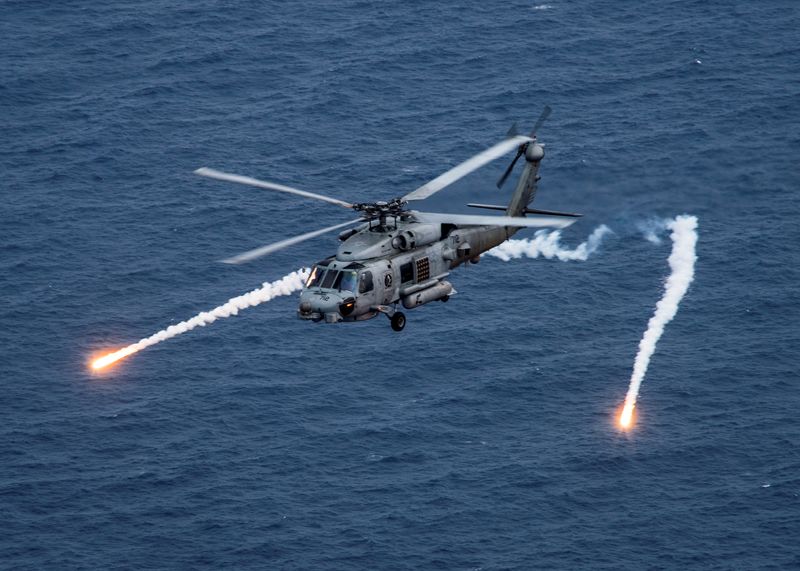TAIPEI (Reuters) -Taiwan signalled on Thursday that it had abandoned a plan to buy advanced new anti-submarine warfare helicopters from the United States, saying they were too expensive.
Taiwan had earlier said it was planning to buy 12 MH-60R anti-submarine helicopters, made by Lockheed Martin Corp (NYSE:LMT) unit Sikorsky, but domestic media said the United States had rejected the sale as not being in line with the island's needs.
Asked in parliament about recent changes to Taiwan's purchases of new U.S. weapons, Defence Minister Chiu Kuo-cheng mentioned the helicopter case first.
"The price is too high, beyond the scope of our country's ability," he said.
Two other arms purchases have also been delayed - M109A6 Medium Self-Propelled Howitzer artillery systems, and mobile Stinger anti-aircraft missiles.
The Raytheon Technologies (NYSE:RTX)' Stingers are in hot demand in Ukraine, where they have been used against Russian aircraft, but U.S. supplies have shrunk and there are significant hurdles to producing more of the anti-aircraft weapons.
Chiu said they had already signed the contract for the Stingers and paid for them, and they would press the United States to deliver them.
"We don't view arms sales as a trifling matter, and we have back-up plans," he added, without elaborating.
Taiwan says the United States has offered it alternatives to the M109A6, including truck-based rocket launchers made by Lockheed Martin called the High Mobility Artillery Rocket System, or HIMARS.
Chiu said they were still considering their options on that.
A U.S. State Department spokesperson declined to comment on specific platforms but said: "The United States' swift provision to Taiwan of defensive weaponry ... is essential for Taiwan's security, and we will continue to work with industry to support that goal."
Taiwan, claimed by China as its own territory, is undertaking a military modernisation programme to improve its capabilities to fend off a Chinese attack, including with precision weapons like missiles.
President Tsai Ing-wen has championed the concept of "asymmetric warfare", which involves developing high-tech, highly mobile weapons that are hard to destroy and can deliver precision attacks.
U.S. officials have been pushing Taiwan to modernise its military so it can become a "porcupine" that is hard for China to attack.
China has been ramping up its own military modernisation and pressure against Taiwan as it seeks to force the democratically governed island to accept Beijing's rule.
Chiu said that recently - without giving a timeframe - there were many "enemy ships" in the waters around Taiwan, which "in principle stand off" with Taiwanese forces. He did not give details.
Eight Chinese naval vessels, including the aircraft carrier the Liaoning, passed between islands in Japan's southern Okinawa chain on Monday, an area that is to Taiwan's northeast.
